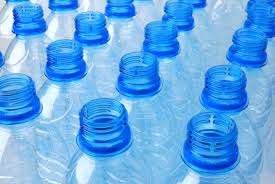
Japanese scientists have discovered a type of bacteria that eats the plastic commonly found in water and soda bottles
A bacteria that not only eats, but digests, PET plastic has been found by a team of researchers from Kyoto Institute of Technology and Keio University in Japan.
The team went out hunting for the bacterium. They collected 250 samples of things like sediment, soil and wastewater, all contaminated by PET plastic, which is also used in polyester clothing, blister packs, sailcloth and packaging trays.
They then studied the microbes found in the samples, working on a process of elimination to determine which of them, if any, were breaking the plastic down. They found just one: Ideonella sakainesis. The research was published in the journal Science last week.
I. sakainesis uses two enzymes to break down the plastic. The first enzyme generates an intermediate chemical, which the second enzyme uses to break the plastic into carbon and energy. It’s a slow process, though. The team determined that it would take a colony of I. Sakainesis six weeks to break down a thin film of PET, and only if the temperature was kept at an even 30 degrees Celsius (80 degrees Fahrenheit).
This means that its potential as a solution to biodegrading plastics is limited. For instance, in the ocean, where 8 million tonnes of plastic end up every year, it’s impossible to regulate the temperature, and even if we could, the temperatures required for I. sakainesis to do its thing would be damaging to other organisms and ecosystems.
“When I think it through, I don’t really know where [I. sakainesis] gets us,” Tracy Mincer, who studies ocean plastics for the Woods Hole Oceanographic Institute, said in a statement. “I don’t see how microbes degrading plastics is any better than putting plastic bottles in a recycling bin so they can be melted down to make new ones.”

